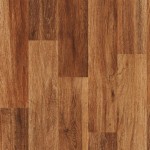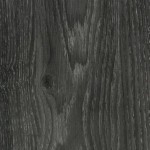Cut Nails for Wood Flooring: An Essential Guide
When it comes to installing wood flooring, choosing the right fasteners is crucial for a long-lasting and stable installation. Cut nails, a traditional fastener used in wood flooring, offer numerous advantages over modern alternatives. This comprehensive guide will explore the essential aspects of cut nails for wood flooring, including their benefits, types, sizes, and installation techniques.
Benefits of Cut Nails for Wood Flooring
Cut nails provide several benefits for wood flooring applications:
- Strong Holding Power: Cut nails have a serrated edge that grips into the wood, resulting in exceptional holding power, making them ideal for high-traffic areas.
- Minimal Damage to Wood: Unlike pneumatic nails, cut nails do not cause splitting or damage to the wood due to their wider shanks and thinner points.
- Precision Installation: Cut nails allow for precise placement, ensuring the flooring is securely fastened without buckling or warping.
- Flexibility: Cut nails can withstand movement in the wood caused by temperature and humidity fluctuations, reducing the risk of squeaky floors.
- Historical Authenticity: For restoration projects or flooring in historic buildings, cut nails are the preferred choice, maintaining the original character and value of the property.
Types and Sizes of Cut Nails
Cut nails come in various types and sizes to accommodate different flooring materials and subfloor conditions:
- Common Cut Nails: General-purpose nails with a sturdy shank and sharp point for most wood flooring applications.
- Finishing Cut Nails: Smaller nails with a thinner shank and a blunted point, used for finishing touches or nailing planks together.
- Clout Nails: Upholstery nails with a large head and a blunt point, often used to secure decorative trim.
The size of cut nails is determined by the thickness of the flooring and the density of the subfloor. Generally, nails should be 2 to 2-1/2 times the thickness of the flooring.
Installing Cut Nails
Installing cut nails requires proper tools and techniques to ensure a secure and professional finish:
- Hammer: Use a traditional nail hammer with a curved claw for extracting nails if necessary.
- Nail Set: A nail set is a tool used to countersink the nail head below the wood surface.
- Technique: Hold the nail at a 45-degree angle to the wood, strike the head firmly, and countersink it with the nail set.
Conclusion
Cut nails remain an essential fastener for wood flooring due to their superior holding power, minimal damage, and historical authenticity. By understanding the different types, sizes, and installation techniques, you can choose the appropriate cut nails for your flooring project, ensuring a durable and aesthetically pleasing installation that will stand the test of time.

Cut Nails Best Square 2024

Cut Nails Hammering Home Authenticity Bob Vila

How To Face Nail Wide Plank Wood Flooring Projects

Cut Nails Best Square 2024

How To Face Nail Wide Plank Wood Flooring Projects

The History And Merits Of Square Nails

Wide Plank Pine Flooring Top Nailed With Cut Nails

Pine Hard How To Install Wide Flooring Angie S Roost

Eastern White Pine With Antique Cut Nails Heart Flooring Floors Wide Plank

The Oddest Cut Nails I Ve Seen Lost Art Press
Related Posts








